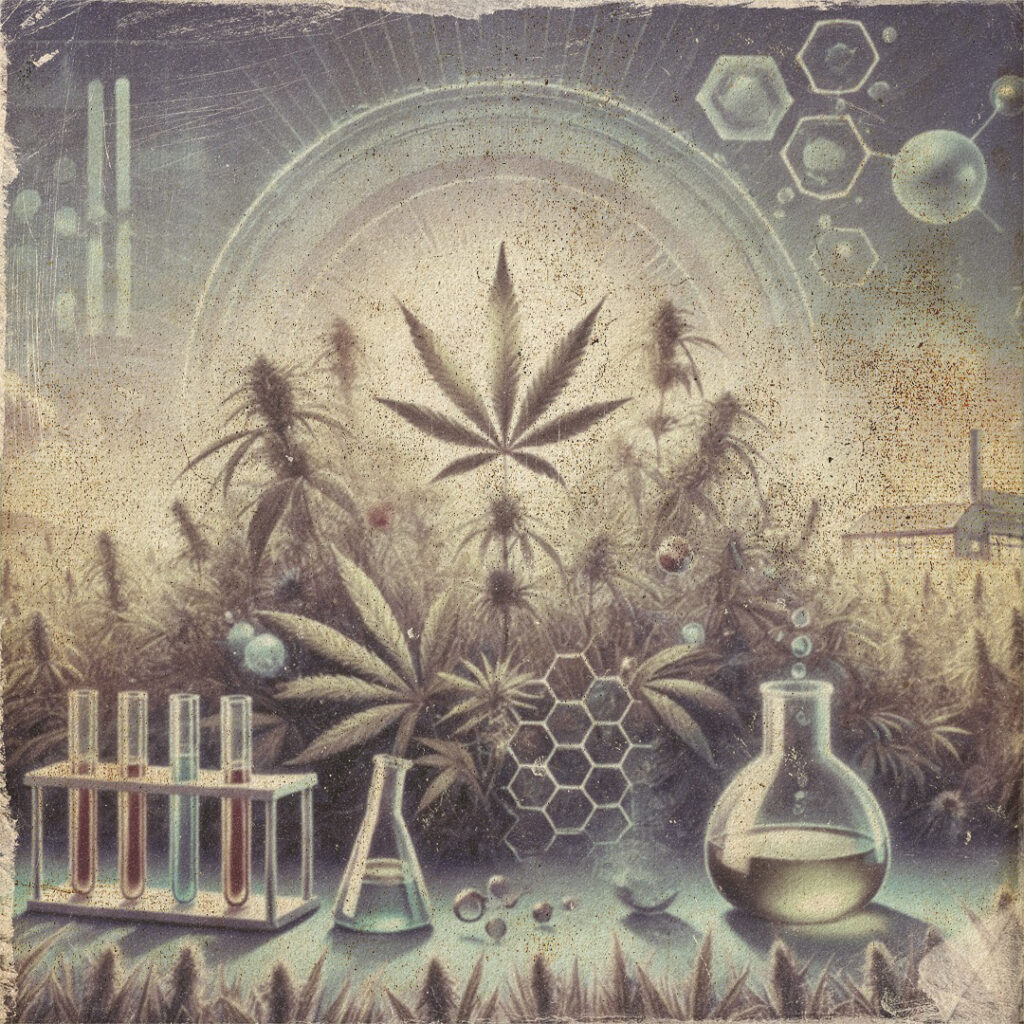USDA extension for DEA-certified hemp testing highlights industry challenges and opportunities, emphasizing compliance, quality, and future market growth.
Hemp’s Long Journey to Mainstream Recognition
Hemp, a versatile and historic crop, has surged into the limelight in recent years. Known for its myriad uses, from textiles to biodegradable plastics and health supplements, hemp’s modern revival was bolstered by the 2018 Farm Bill.
This landmark legislation legalized hemp cultivation, provided the THC concentration remains at or below 0.3%. While this opened the door to massive opportunities, it also placed stringent regulations on the industry, especially regarding testing protocols to ensure compliance.
Hemp testing is a cornerstone of this evolving market. Accurate testing not only ensures compliance with THC limits but also safeguards product quality and consumer trust. However, as the industry expands, so do the complexities surrounding hemp testing, including federal oversight and capacity issues.
USDA’s Extension for DEA-Licensed Lab Testing
A History of Evolving Deadlines
Initially, the USDA required hemp testing to be conducted in laboratories certified by the Drug Enforcement Administration (DEA). This mandate aimed to uphold stringent quality and compliance standards. However, as the industry raced to adapt, it became clear that the original deadlines were overly ambitious. Multiple extensions were granted, with each delay underscoring the logistical and regulatory challenges of DEA certification.
In response to ongoing concerns from state and tribal governments, as well as third-party laboratories, the USDA announced a further extension. The new deadline for DEA-certified testing requirements is set for December 31, 2025. This extension reflects the USDA’s acknowledgment of capacity constraints and feedback from stakeholders, allowing non-DEA-certified labs to continue their work in the interim.
Industry Implications
While the extension provides temporary relief, it highlights deeper concerns. Industry stakeholders worry about the of DEA-certified testing capacity for the 2025 growing season. With many farmers and producers relying on non-DEA-certified labs, the extension underscores the urgent need to expand and distribute certified lab resources.
Challenges Faced by Testing Laboratories
The Rigors of DEA Certification
Obtaining DEA certification is no small feat. Laboratories must meet stringent criteria, from security measures to operational protocols. This process, while ensuring high standards, has led to delays and bottlenecks, leaving many regions underserved.
Testing Capacity and Accessibility
The limited number of DEA-certified labs poses a significant challenge. Geographic disparities mean some hemp producers face long waits and higher costs to access certified testing. For an industry built on tight margins, these hurdles can be make-or-break.
Balancing Compliance and Quality
Beyond DEA certification, labs must navigate a labyrinth of regulatory requirements. Maintaining quality assurance while scaling operations remains a constant challenge, particularly for smaller facilities striving to meet industry demands.
Decline in Hemp Production: A Sobering Trend
Indoor and Outdoor Production Trends
Hemp production in the United States has faced a steep decline. Indoor hemp cultivation dropped from 15.5 million square feet in 2021 to just 3.2 million square feet in 2023. Outdoor hemp acreage has also seen a modest decline, signaling broader market challenges.
Factors Driving the Decline
Market saturation, fluctuating demand, and economic pressures have all contributed to the downturn. Regulatory hurdles, including compliance costs and testing requirements, further exacerbate the issue. These challenges underscore the need for a more streamlined and supportive regulatory framework to stabilize the industry.
Insights from the National Hemp Report
Comprehensive Data on Hemp Production
The National Hemp Report serves as a vital resource, offering key insights into production trends, yields, and economic value. With detailed statistics on planted and harvested acreage, as well as the value of utilized production, the report sheds light on the evolving hemp market.
Emerging Trends and Future Projections
While production has declined, certain growth areas hold promise. Innovations in hemp-based products and potential regulatory reforms could spur renewed interest. The report also highlights the top-producing states, providing a roadmap for future industry hubs.
Hemp Testing Guidelines: The Backbone of Compliance
Standardized Protocols for THC Testing
Accurate THC testing is non-negotiable in hemp production. Standardized procedures ensure compliance, including specific sampling methods and the calculation of measurement uncertainty. These protocols not only meet regulatory demands but also build consumer trust.
Regulatory Oversight by the USDA and DEA
The USDA plays a central role in regulating hemp production, while the DEA oversees lab certification and enforcement. Together, these agencies aim to balance industry growth with public safety. However, ongoing collaboration with stakeholders is essential to address current gaps.
The Stakes of Accurate Testing
Accurate testing is about more than compliance—it’s about market integrity. Producers rely on precise results to ensure their products meet legal standards, and consumers depend on these assurances for their safety and satisfaction.
Charting a Path Forward
As the hemp industry continues to evolve, the USDA’s extension for DEA-certified testing reflects both progress and persistent challenges. Testing capacity, certification delays, and production declines highlight the need for strategic adaptation. At the same time, opportunities for growth remain abundant, particularly as regulatory frameworks mature and market conditions stabilize.
The road ahead will require collaboration, innovation, and resilience. For hemp producers, maintaining compliance and quality will be crucial to building trust and securing a foothold in this dynamic industry. With a renewed focus on testing infrastructure and market expansion, the future of hemp holds significant promise—if the industry can navigate its growing pains.

***
Trap Culture is the ultimate destination for cannabis enthusiasts who want to experience the best of Arizona’s cannabis culture. Whether you are looking for the hottest cannabis-friendly events, the latest news on cannabis legalization, trends in the industry and exclusive, limited-edition products from the top brands in the market, Trap Culture has you covered. Visit our website to learn more about our events, our blog, and our store. Follow us on social media to stay updated on the latest news and promotions. Join the Trap Culture family and experience the most immersive and engaging social cannabis events in Arizona.
Follow us on social media




